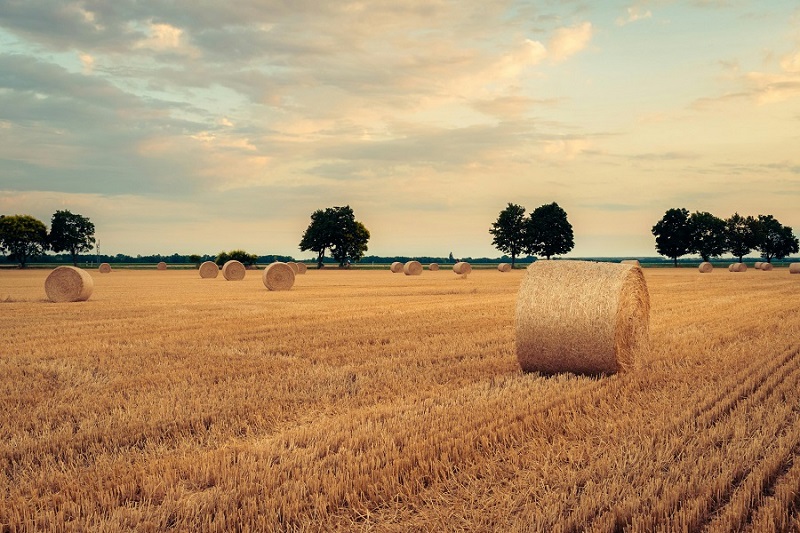The Month of September

Dark Religious Myths About the Month of September
Dark Religious Myths About the Month of September
September is often regarded as a time of transition and change, marked by the shift from summer to autumn in the Northern Hemisphere. While many cultures and religions view this period as a time of harvest, renewal, and reflection, there are also darker connotations associated with September. Various religious myths and beliefs from around the world tie this month to ominous events, prophecies, and mystical occurrences. This paper explores some of the darker religious myths about the month of September, examining how these narratives have been woven into the spiritual fabric of different cultures and belief systems.
1. Biblical Apocalyptic Themes
In Christianity, particularly within certain eschatological interpretations, September has been associated with apocalyptic themes and the end times. The Book of Revelation, the final book of the New Testament, describes a series of catastrophic events that will occur during the end times. While the Bible does not explicitly mention September, some theologians and prophecy enthusiasts have attempted to link the events described in Revelation to specific dates and months, including September.
One of the most notable associations is with the Feast of Trumpets, or Rosh Hashanah, a Jewish festival that typically falls in September. Some Christian groups believe that the Feast of Trumpets is a prophetic foreshadowing of the Rapture, a future event where believers are said to be taken up to heaven before a period of great tribulation on Earth. The blowing of trumpets during this feast has been linked to the trumpet calls described in the Book of Revelation (Revelation 8-11), which signal a series of judgments and plagues. For these groups, September becomes a month of potential divine judgment and cosmic upheaval.
ALSO READ
- 350+ Happy New Month September Wishes
- Dark Religious Myths About the Month of September
- Happy New Month September 2024 Prayer
2. Jewish Mysticism and Tishrei
In Jewish mysticism, particularly within Kabbalistic traditions, the month of Tishrei (which usually begins in September) is seen as a time of judgment and spiritual reckoning. The High Holy Days, Rosh Hashanah and Yom Kippur, are observed during this month and are believed to be days when God judges all of humanity, inscribing the fate of each individual for the coming year in the Book of Life or the Book of Death.
According to some mystical interpretations, the days between Rosh Hashanah and Yom Kippur, known as the Ten Days of Repentance, are a period when the forces of judgment are particularly strong. It is believed that during this time, the Satan (often translated as “the Accuser” or “the Adversary”) has more power to prosecute individuals in the heavenly court, seeking to highlight their sins and failings. The darker aspects of this belief suggest that September is a month when evil forces are more active, trying to sway the divine judgment against humanity.
3. Pagan and Wiccan Beliefs about the Autumn Equinox
In various Pagan and Wiccan traditions, the autumn equinox, which falls around September 22nd or 23rd, is a significant time of balance between light and darkness. However, it also marks the beginning of the descent into the darker half of the year, as daylight decreases and the nights grow longer. This transition is often viewed with a mixture of reverence and trepidation, as it symbolizes the dying of the old year and the onset of winter.
Some Pagan myths describe the autumn equinox as a time when the veil between the worlds of the living and the dead becomes thinner. Spirits and other supernatural entities are believed to be more active and able to cross into the mortal realm more easily. This period is associated with the “Wild Hunt,” a spectral procession of ghostly hunters, gods, or demons riding through the skies, which is said to occur on stormy autumn nights. In these myths, September becomes a month of heightened supernatural activity and potential danger from malevolent forces.
4. Islamic Views on the Month of Muharram
In Islamic tradition, the month of Muharram, which sometimes coincides with September, is one of the four sacred months in which warfare is prohibited. However, Muharram is also associated with significant historical and religious events that carry a somber and tragic tone. The most notable of these is the Day of Ashura, which commemorates the martyrdom of Husayn ibn Ali, the grandson of the Prophet Muhammad, at the Battle of Karbala in 680 CE.
For many Muslims, especially within the Shia community, the month of Muharram and the Day of Ashura are times of mourning and reflection on the themes of sacrifice, justice, and suffering. The death of Husayn is seen as a profound tragedy and a symbol of the struggle against tyranny and oppression. In some narratives, this month is also considered a time when the forces of evil were temporarily triumphant, leading to a period of darkness and mourning within the community.
5. Hindu Mythology and the Pitru Paksha
In Hinduism, Pitru Paksha is a 16-lunar day period that usually falls in September. During this time, Hindus pay homage to their ancestors through ritual offerings known as Shraddha. This period is considered inauspicious in Hindu culture because it is believed that the spirits of the ancestors come down to earth to receive these offerings. The belief is that neglecting these rites can lead to unrest among the spirits, causing misfortune or curses on the descendants.
Some darker myths associated with Pitru Paksha involve the idea of ancestral spirits who were wronged or not properly honored becoming malevolent or restless. There are stories of such spirits causing havoc, illness, or other forms of suffering to compel the living to perform the necessary rituals to appease them. Thus, September, during Pitru Paksha, is seen as a time when the living are vulnerable to the influence of these spirits, emphasizing a need for vigilance and reverence.
6. Native American Beliefs and the Corn Harvest
Among certain Native American tribes, September is traditionally associated with the corn harvest, a critical time for preparing for the coming winter. However, this period is also viewed with caution due to the belief in various spirits and entities associated with the harvest and the changing seasons. Some myths speak of spirits that guard the crops and must be appeased through rituals and offerings.
These harvest spirits can be benevolent or malevolent, depending on how they are treated. In some narratives, failing to honor these spirits can lead to poor harvests, famine, or sickness. The dark undertone in these stories reflects the deep connection between the people, the land, and the spiritual world, where neglect or disrespect could bring dire consequences.
7. Occult Beliefs and September’s “Black Moon”
In some occult traditions, the concept of a “Black Moon” (a second new moon in a single calendar month) is viewed as a time of heightened spiritual and magical activity. While Black Moons can occur in any month, those that fall in September are often associated with themes of darkness, secrecy, and hidden knowledge due to the month’s alignment with the equinox and the descent into the darker half of the year.
Practitioners of certain occult traditions may use a September Black Moon for rituals involving banishment, protection, or the invocation of darker forces. This period is believed to amplify the energies of the unseen and the unknown, making it a powerful time for those who wish to explore or harness these forces.
8. Astrological Influences and September’s Virgo and Libra
In astrology, September is dominated by the signs of Virgo and Libra. Virgo, represented by the virgin, is often associated with purity, order, and harvest. However, Virgo’s darker aspect can be seen in myths involving overly critical or judgmental behavior, a focus on perfectionism to the point of obsession, and a fear of chaos and disorder.
Libra, symbolized by the scales, is associated with balance, justice, and harmony. Yet, its darker side can emerge when balance is disrupted, leading to indecision, manipulation, and a desire for control that can result in conflict or moral ambiguity. In this way, the astrological energies of September can be seen as a time when both light and shadow aspects of personality are brought to the forefront.
[wpdiscuz-feedback id=”7d20gay2aw” question=”What do you think about the month of September?” opened=”0″]CLICK HERE TO SHARE YOUR OWN PERSPECTIVES[/wpdiscuz-feedback]Conclusion
The month of September, while often celebrated for its natural beauty and cultural significance, also carries a wealth of darker myths and beliefs across various religious traditions. From apocalyptic prophecies and spiritual judgments to the thinning veil between worlds and the influence of malevolent spirits, September is a month that encapsulates the duality of existence—where light and darkness, life and death, hope and fear are in constant interplay. Understanding these myths offers a deeper insight into how humanity has historically grappled with the unknown, the unseen, and the changing rhythms of nature and time.
 ODM Daily Inspirational Devotional Messages Bible Verse and Prayers ODM
ODM Daily Inspirational Devotional Messages Bible Verse and Prayers ODM


